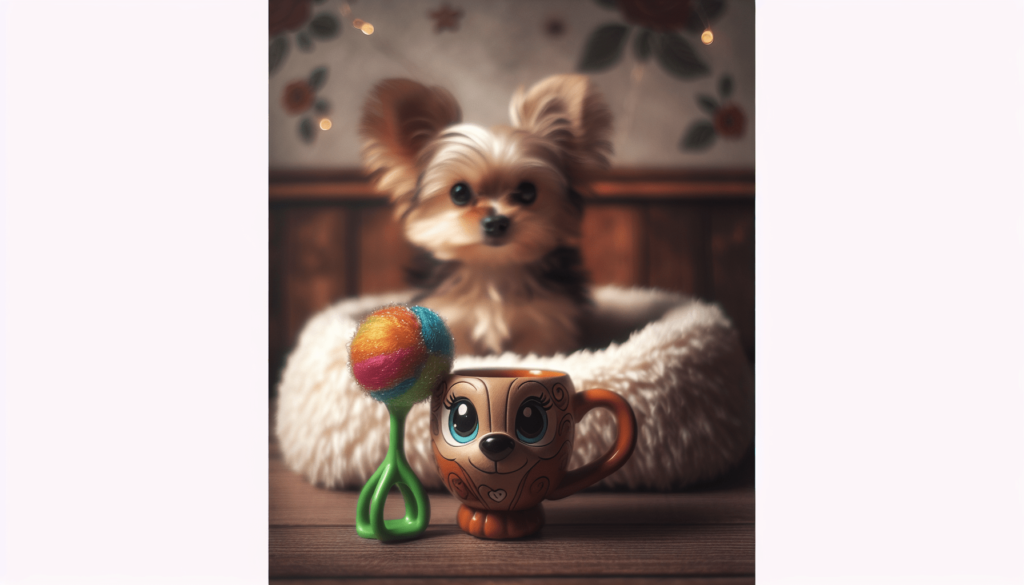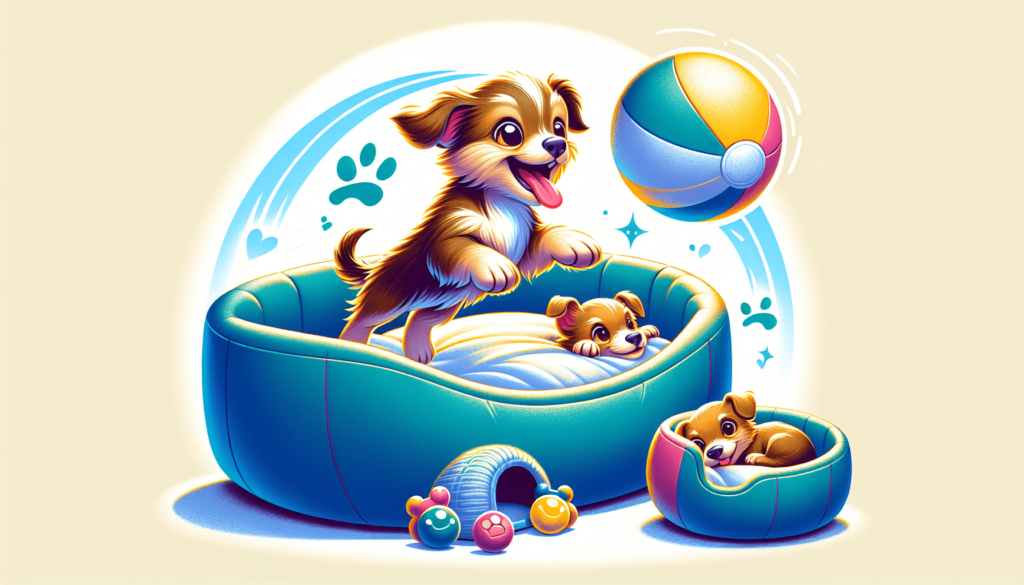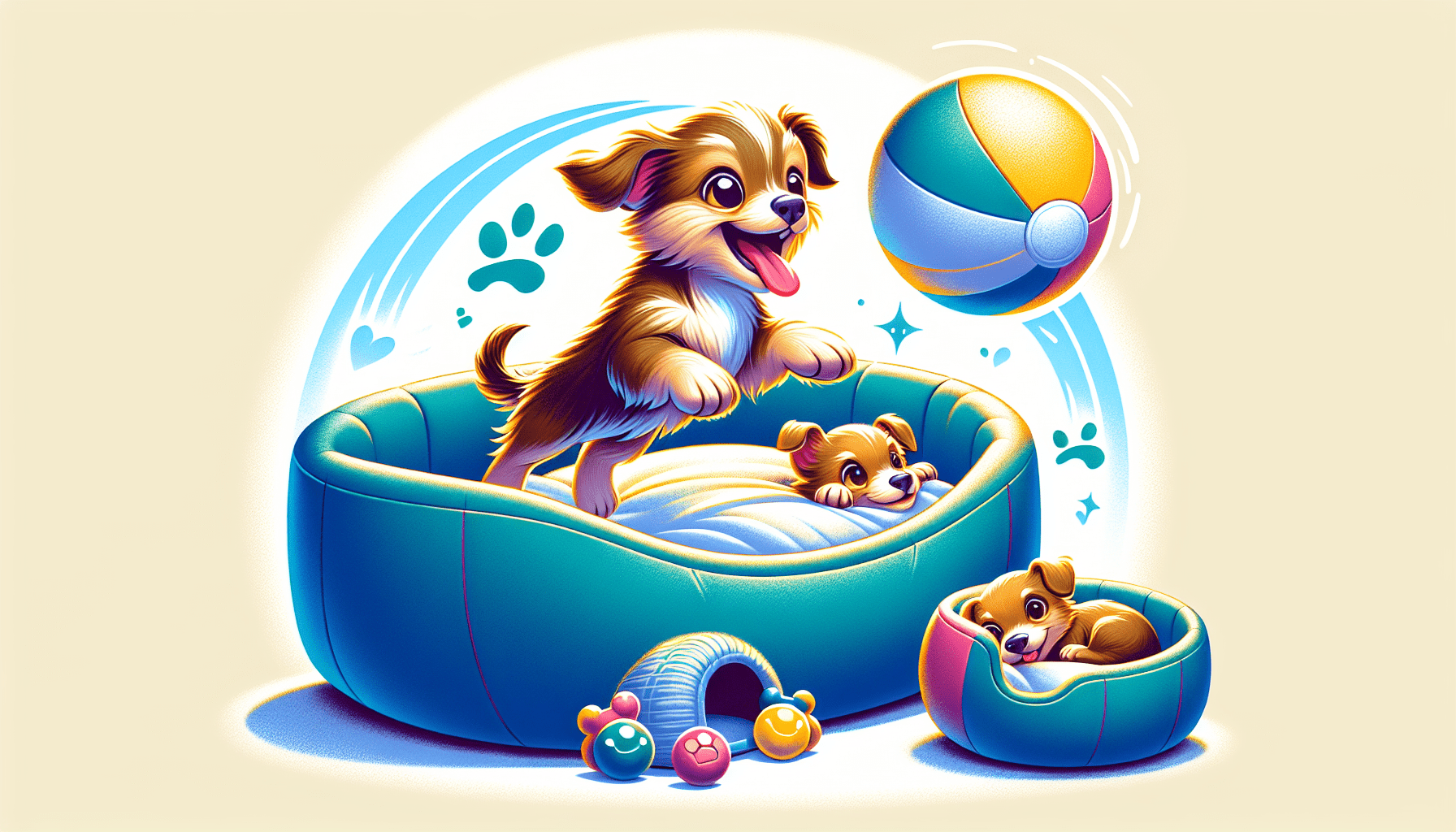Are you a dog lover? If so, then you’re in for a treat! In this article, we will be taking a closer look at the wonderful world of small dog breeds. From the playful Chihuahuas to the elegant Cavalier King Charles Spaniels, there is a small dog breed out there for everyone. Join us as we explore the unique characteristics, personalities, and care needs of these pint-sized pups. Get ready to fall in love with these adorable furry companions!

History of Small Dog Breeds
Small dog breeds have a long and fascinating history that stretches back centuries. The origins of small dog breeds can be traced back to various parts of the world, where they were bred for specific purposes.
Origins of small dog breeds
Small dog breeds originated in different regions around the world, each with its own unique characteristics and traits. For example, the Chihuahua, one of the smallest dog breeds, traces its roots back to ancient civilizations in Mexico. These dogs were believed to have been sacred companions to the Toltec civilization and were highly valued for their small size and loyalty.
In Europe, small dog breeds such as the Maltese and the Yorkshire Terrier were popular among nobility and the aristocracy. These dogs were often kept as lapdogs and were treasured for their beautiful coats and charming personalities.
Evolution of small dog breeds over time
Over time, small dog breeds have evolved to meet the changing needs and preferences of humans. As society shifted from agricultural to urban lifestyles, small dog breeds became more popular due to their adaptability to smaller living spaces. Breeders began focusing on developing small dogs with desirable traits such as low maintenance coats, friendly personalities, and compatibility with families and children.
Role of small dog breeds in different cultures
Small dog breeds have played a significant role in many cultures throughout history. In ancient China, the Shih Tzu was highly valued for its resemblance to lions, which were considered sacred. These dogs were kept as companions to the Chinese nobility and were known for their luxurious coats and regal aura.
In Japan, the Japanese Chin was bred to be a companion dog for the imperial court. These small dogs were cherished for their elegance and grace, and were often given as gifts to foreign dignitaries.
Small dog breeds also played a role in working environments. The Dachshund, for example, was originally bred in Germany to hunt badgers. Their long, low bodies allowed them to enter badger burrows, making them highly effective in their hunting duties.
Characteristics of Small Dog Breeds
Small dog breeds possess a range of characteristics that make them unique and appealing to dog lovers. From size and weight to coat types and temperament, these traits contribute to the charm and allure of small dogs.
Size and weight
Small dog breeds typically weigh between 2 to 25 pounds and stand around 6 to 15 inches tall at the shoulder. Despite their small stature, these dogs pack a whole lot of personality into their pint-sized bodies.
Coat types and colors
Small dog breeds come in a variety of coat types and colors. Some, like the Shih Tzu and Maltese, have long, flowing hair that requires regular grooming. Others, like the French Bulldog and Pug, have short coats that are low maintenance. The colors and patterns seen in small dog breeds range from solid colors like black and white to intricate patterns such as brindle and merle.
Temperament and personality traits
Small dog breeds often have big personalities. They can be lively, confident, and spirited, or they can be calm, gentle, and affectionate. Each breed has its own unique set of temperamental traits, so it’s important to research and understand the characteristics of the specific breed you are interested in.
Common health issues
While small dog breeds are generally known for their longevity, they can be prone to certain health issues. Some of the common health problems seen in small dog breeds include dental problems, patellar luxation, heart conditions, and respiratory issues. It’s important to ensure proper healthcare and regular veterinary check-ups to keep your small dog in good health.
Popular Small Dog Breeds
There are numerous small dog breeds to choose from, each with its own unique qualities and characteristics. Here are some of the most popular small dog breeds:
Chihuahua
The Chihuahua is one of the smallest dog breeds, known for its terrier-like personality and big, expressive eyes. Despite their tiny size, Chihuahuas are fearless and confident, making them excellent companions for individuals or families.
Pomeranian
With their fluffy double coats and fox-like appearance, Pomeranians are a favorite among small dog enthusiasts. These spunky and intelligent dogs are known for their extroverted personalities and their ability to make anyone smile with their playful nature.
French Bulldog
The French Bulldog, or Frenchie, is a small but muscular breed with a distinctive bat-like ears and a friendly, adaptable nature. They are known for their affectionate and sociable personalities, making them great companions for families and individuals alike.
Pug
Pugs are small dogs known for their wrinkled faces and curly tails. They have a charming and mischievous personality that endears them to their owners. Pugs are known to be friendly, outgoing, and enthusiastic, making them ideal pets for families.
Dachshund
Dachshunds, also known as wiener dogs or sausage dogs, are small yet long-bodied dogs that were originally bred for hunting. They have an energetic and playful nature, matched with a strong sense of loyalty and affection towards their owners.
Shih Tzu
Shih Tzus are small dogs with long, flowing coats that require regular grooming. They are known for their sweet and friendly demeanor, making them popular as family pets. Shih Tzus are highly adaptable and can thrive in both apartments and larger homes.
Yorkshire Terrier
Yorkshire Terriers, or Yorkies, are small dogs with a glamorous and elegant appearance. They have a confident and courageous personality, making them a perfect choice for individuals or families seeking a lively and devoted companion.
Maltese
The Maltese is a small dog breed known for its long, silky white coat. They are gentle and affectionate dogs that thrive on human companionship. Their small size and adaptable nature make them a popular choice for families and individuals alike.
Boston Terrier
Boston Terriers are small, muscular dogs known for their tuxedo-like markings and friendly personalities. These playful and affectionate dogs are great companions for families and individuals looking for a small, but energetic pet.
Cavalier King Charles Spaniel
Cavalier King Charles Spaniels are small dogs with a regal and elegant appearance. They are known for their friendly and gentle nature, making them great family pets and therapy dogs. Cavaliers are highly adaptable and can thrive in both apartment living and larger homes.
Training and Socialization for Small Dog Breeds
Training and socialization are essential for small dog breeds to ensure they grow up to be well-behaved and well-adjusted pets. Here’s why training is important for small dogs and some tips on how to effectively train them:
Importance of training for small dog breeds
Training is vital for small dog breeds to establish boundaries, command obedience, and ensure their safety. Small dogs can be prone to developing behavior problems if not properly trained, such as excessive barking, aggression, and separation anxiety. Training helps small dogs understand their place in the family and how to interact with humans and other animals appropriately.
Tips for effective training techniques
When training small dog breeds, it’s important to use positive reinforcement techniques such as rewards, treats, and praise. Small dogs respond well to consistent and positive training methods, so be patient, consistent, and provide clear cues and commands. Short training sessions several times a day are more effective than one long session.
Socialization needs of small dog breeds
Socialization is crucial for small dog breeds to ensure they are comfortable and well-behaved in various social settings. Introduce your small dog to different people, animals, and environments from a young age to help them form positive associations with new experiences. Regular exposure to different situations will help prevent fear and aggression issues as they grow older.

Exercise and Activity Requirements
While small dogs may not require as much exercise as larger breeds, they still have physical and mental stimulation needs that should be met. Here’s what you need to know about exercise and activity requirements for small dog breeds:
Physical exercise needs
Small dog breeds benefit from daily exercise, usually ranging from 30 minutes to an hour. This can include short walks, play sessions, and interactive toys. It is important to consider the individual breed’s energy level and adjust exercise accordingly. Regular exercise helps keep small dogs physically fit, maintains a healthy weight, and prevents behavioral issues caused by pent-up energy.
Mental stimulation requirements
In addition to physical exercise, small dog breeds also require mental stimulation to keep their minds engaged and prevent boredom. Interactive toys, puzzle games, and obedience training sessions can provide mental challenges for small dogs. Mental stimulation helps prevent destructive behaviors and promotes overall mental well-being.
Suitable activities for small dog breeds
There are various activities that small dog breeds can enjoy. Agility training, which involves navigating through obstacle courses, can provide mental and physical stimulation. Small dog playgroups or socialization with other dogs can also be beneficial. Additionally, trick training, scent work, and obedience training can keep small dogs mentally engaged and entertained.
Grooming and Maintenance
Proper grooming and maintenance are important for small dog breeds to keep them looking their best and maintain their overall health and well-being. Here are some grooming routines and practices to consider for small dogs:
Coat care and grooming routines
Different small dog breeds have different coat types that require specific care. For example, long-haired breeds like the Maltese may need daily brushing to prevent matting, while short-haired breeds like the Pug may only need weekly brushing to remove loose hair. Regular bathing, nail trimming, and teeth brushing should also be a part of the grooming routine to maintain a clean and healthy appearance.
Dental hygiene
Small dog breeds are prone to dental problems due to their small mouths and crowded teeth. Regular dental care is essential to prevent dental disease and maintain good oral hygiene. This includes regular teeth brushing and providing dental chews or treats that promote dental health.
Nail trimming
Regular nail trimming is important for small dogs to prevent overgrowth, which can lead to discomfort and difficulty walking. It’s important to use proper techniques and tools, or seek professional grooming services if you are not comfortable doing it yourself. Trimming nails too short can cause pain and bleeding, so it’s best to consult a veterinarian or professional groomer for guidance.
Ear cleaning
Small dog breeds with floppy ears, such as the Cavalier King Charles Spaniel, are prone to ear infections. Regular ear cleaning can help prevent buildup of wax and dirt, reducing the risk of infections. Use a gentle cleanser and consult a veterinarian for proper cleaning techniques to avoid damaging the ear canal.
Regular health check-ups
Regular veterinary check-ups are essential for small dog breeds to catch any potential health issues early on. Vaccinations, parasite prevention, and routine examinations are important to ensure your small dog’s overall health and well-being. Regular check-ups also allow your veterinarian to detect any potential health problems and provide necessary treatments.
Living Spaces for Small Dog Breeds
Small dog breeds are well-suited for a variety of living spaces, including apartments and houses with limited outdoor areas. Here are some considerations to keep in mind when providing a living space for a small dog:
Apartment living with small dog breeds
Small dogs are often a popular choice for apartment living due to their size and adaptability. However, it’s important to provide them with regular exercise and mental stimulation to prevent boredom and destructive behavior. Designate an area for toileting needs and consider using indoor potty options or taking them for regular outdoor walks.
Outdoor space considerations
While small dog breeds can thrive in apartments, they still benefit from outdoor access and fresh air. If you have a small backyard or access to a nearby park, ensure that it is securely fenced to prevent escapes. Supervised outdoor time for play and exercise is important for small dogs, but be cautious of extreme weather conditions and provide shade and water as needed.
Creating a safe and comfortable environment
Small dogs are prone to accidents and injuries, so it’s important to create a safe and comfortable environment for them. Use gates or barriers to restrict access to dangerous areas and secure hazardous items like chemicals and electrical cords. Provide them with cozy bedding, toys, and a designated area for rest to ensure they feel secure and content in their living space.
Feeding and Nutrition
Proper nutrition is essential for the overall health and longevity of small dog breeds. Here are some factors to consider when choosing the right diet for your small dog:
Choosing the right diet for small dog breeds
Small dog breeds have unique nutritional needs that should be met through a balanced and appropriate diet. Choose a high-quality commercial dog food specifically formulated for small breeds. Look for a diet that provides the right balance of protein, fats, carbohydrates, vitamins, and minerals. Consider your dog’s age, activity level, and any specific dietary requirements or sensitivities they may have.
Portion control and feeding schedules
Small dogs are prone to weight gain and obesity, so proper portion control is crucial. Follow the feeding guidelines provided by the dog food manufacturer and adjust the amount according to your dog’s size, activity level, and metabolism. Dividing the daily portion into multiple small meals can help prevent overeating and aid digestion. Stick to a consistent feeding schedule to establish a routine.
Special dietary needs for small dog breeds
Some small dog breeds may have specific dietary needs or health conditions that require a specialized diet. For example, certain breeds may be prone to allergies or sensitivities, while others may require a modified diet to manage specific health conditions like heart disease or diabetes. Consult with your veterinarian to determine the most appropriate diet for your small dog.
Small Dog Breeds and Families
Small dog breeds can make wonderful companions for families, offering love, companionship, and entertainment. Here are some considerations when choosing a small dog breed for a family:
Suitability for households with children
When choosing a small dog breed for a family, it’s important to consider the temperament and energy level of both the breed and individual dog. Some small breeds, like the Cavalier King Charles Spaniel and the Maltese, are known for their gentle and patient nature, making them great choices for families with children. However, it’s important to teach children how to properly interact with and handle small dogs to prevent accidents or injury.
Small dog breeds as companions for seniors
Small dog breeds can be ideal companions for seniors due to their small size, lower exercise requirements, and affectionate nature. They can provide companionship, emotional support, and a sense of purpose to seniors. However, it’s important to consider factors such as physical ability, lifestyle, and the senior’s ability to provide care and attention to a small dog.
Adopting a small dog breed for a family
Adopting a small dog breed from a shelter or rescue organization is a great way to add a new furry member to your family. Many small dogs are in need of loving homes, and adoption offers the opportunity to provide a second chance to a rescue dog. Research and visit local shelters or search breed-specific rescue organizations to find the perfect small dog for your family. Consider factors such as the dog’s temperament, history, and compatibility with children and other pets.
Finding a Reputable Breeder or Rescue
When considering adding a small dog breed to your family, it’s important to find a reputable breeder or rescue organization. Here are some tips to help you make an informed decision:
Researching and selecting a responsible breeder
When choosing a breeder, it’s important to do thorough research and select a responsible one. Look for breeders who prioritize the health and welfare of their dogs, provide proper socialization, and have a good reputation within the dog breeding community. Visit the breeder’s facility, meet the puppies and their parents, and ask questions about the breeding program and health testing. A reputable breeder will be transparent and willing to provide all necessary information.
Considering adoption from a rescue or shelter
Adopting a small dog breed from a rescue or shelter is a compassionate choice that can save a life. Many small dogs end up in shelters or rescues due to various reasons, including changes in family circumstances or behavior issues. By adopting, you are giving a deserving dog a second chance at a forever home. Research local rescues or check with your local animal shelter to inquire about available small dog breeds for adoption.
Questions to ask breeders or shelters
When speaking with breeders or shelters, ask questions to ensure you are making an informed decision and selecting a reputable source. Inquire about health clearances on the parents, genetic testing for breed-specific conditions, vaccination records, and any behavioral assessments. Ask about the puppy’s early socialization experiences, their diet, and any recommendations for care and training. A responsible breeder or shelter will be open and willing to address your questions and concerns.
In conclusion, small dog breeds have a rich history and diverse range of characteristics, making them well-suited for a variety of lifestyles and families. Whether you are looking for a pint-sized companion for urban living or a lively playmate for your children, small dog breeds offer loyalty, love, and endless joy to their owners. With proper care, training, and socialization, small dogs can thrive and become cherished members of the family.

